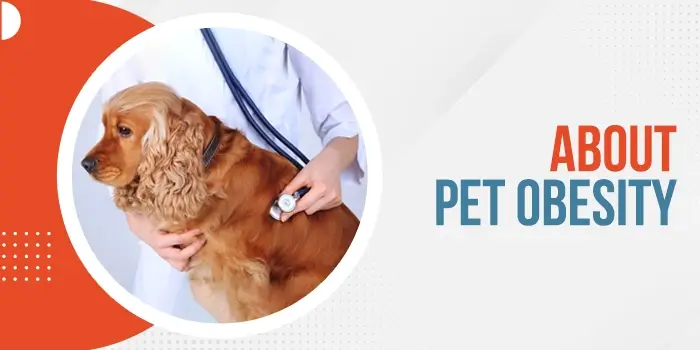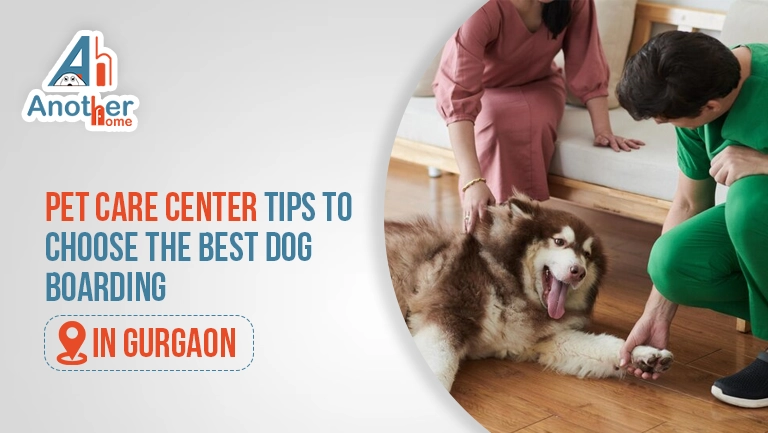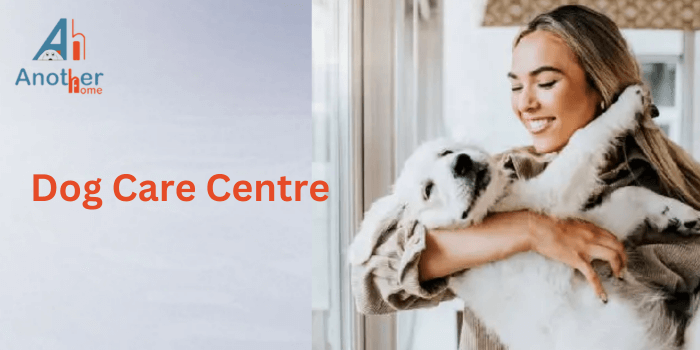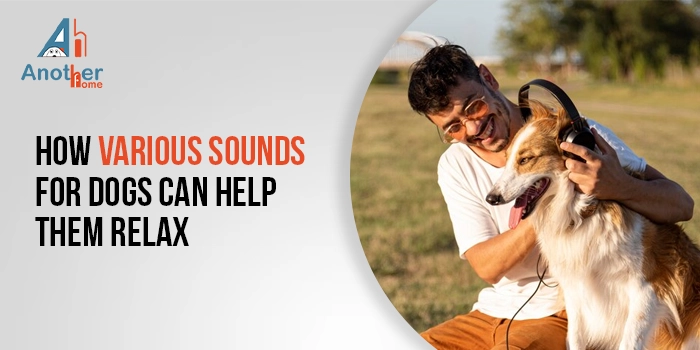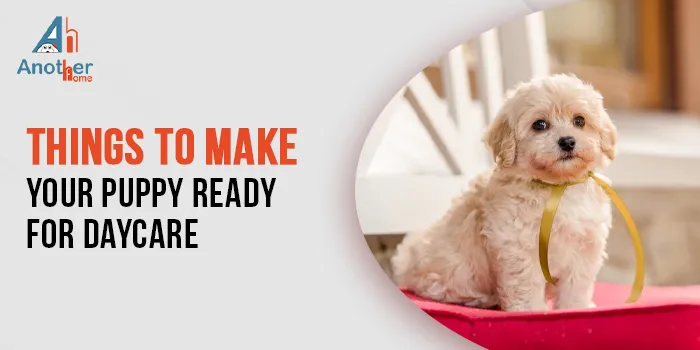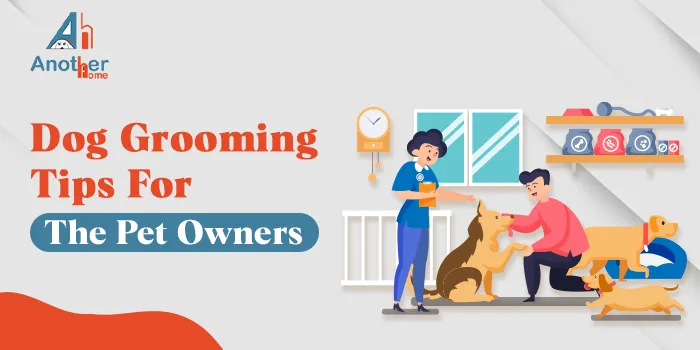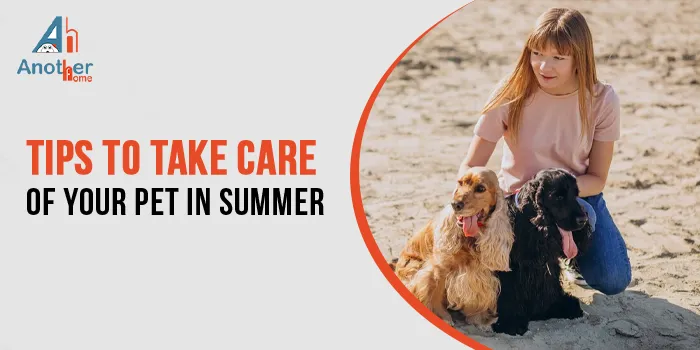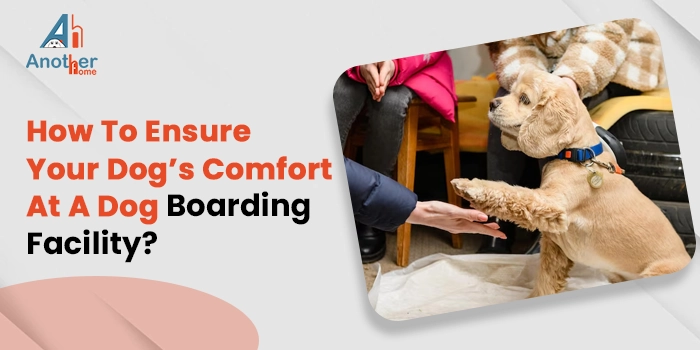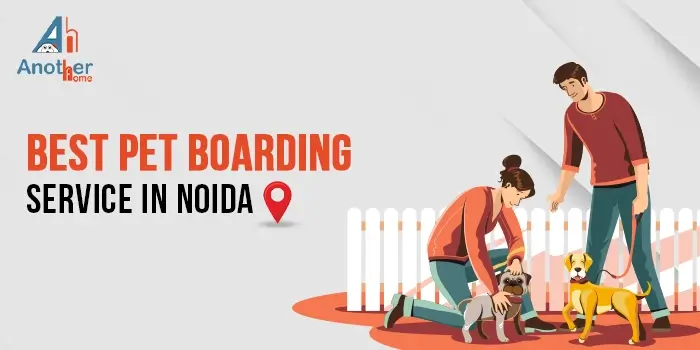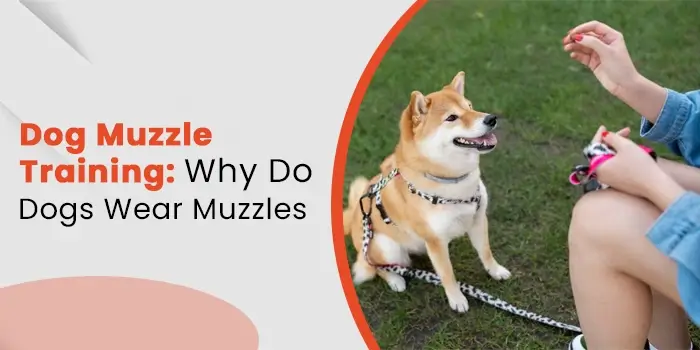Pet obesity is a new issue that has made its mark in recent years. Undoubtedly, we love to showcase our love to our pets, giving them extra treats and cooking them their favourite meal. I mean, who does not love their furry friends? While their love language is licking faces, our love language feeds them with their desired treats. What we fail to understand is that these habits of ours can lead to pet obesity. Obesity has its risks, sometimes it can be so brutal that someone may end up losing their life.
Maintaining a healthy lifestyle with pets is difficult, especially if they love sleeping around all day. We can make a schedule for them and tweak their diet slightly. Most dogs and cats are considered obese when they are 20 or 30% above their ideal body weight. If you are one of those pet parents who have a pet going through the same, then you must read this one, as it will explain how you can maintain a healthy lifestyle for your dog.
Warning Signs Of Obesity In Pets
As we have explained earlier, our love language provides our furry ones with their favourite meals, not knowing the consequences it will have on our pet's health later on. Do you know that obesity can cause diabetes, and it also has significant effects on their life cycle as well. Your pet may live less if they are juggling with obesity. To know if your pet is obese, all you have to do is look for these signs:
- A clear sign of obesity is the stomach sag. If you see it popping out, it means they are obese.
- Can you feel their ribcage? Make sure to check and see if you can check their ribs easily; if you have to put in a lot of effort, your pet must lose some pounds.
- Could you pay attention to their figure? Most obese pets are oval-shaped from their stomach and hips area.
- Check to see if they have a broad and flat back. The flat and broader back side indicates that your pet is too thick from the sides.
Now, there can be many more reasons for your pet to be obese than for an excessive diet. Keep an eye out for the next section, as we will be discussing alternate reasons for obesity in pets.
Is Feeding My Pet What Causes Them To Be Obese?
No, feeding our pets is not what causes them to be obese. There are many reasons; some may be genetic, whereas others can be more medical. Let's check them out:
Besides overfeeding, ageing can be a reason. Pets' ageing directly affects their health, causing low metabolism or other issues.
They may or may not be suffering from Hypothyroidism. This disease is quite common in pets, which stops their thyroid gland from producing thyroxine. It has a direct impact on the pet's metabolism.
Insulinoma is another disease that causes both cats & dogs to produce insulin in excessive amounts. The side effect of this disease is that it makes your pet gain weight like crazy.
How Can I Stop My Pet From Being Too Obese?
It's always possible to start a healthy lifestyle; even so, you can change the lifestyle and your pet's diet. We advise you to consider the veterinarian before changing your pet's diet. We at Another Home help people like you to maintain a perfect lifestyle for your furry friend. This is why we advise you to seek a professional's advice.
For now, follow these tips:
- Make sure to take your pets for a walk daily. When you step into maintaining a healthy lifestyle for your pets, always start little. Take your furry friends on long walks and let them make a run for it. These daily activities can help your furry pet maintain their ideal body weight.
- Do not overfeed your pet. We know the temptation is real, and it's quite hard when your pet looks at you with their Googly eyes. But this is where you have to make some changes; for starters, make a chart for your pet and give them meals at a specific time rather than feeding them occasionally.
- You can consult a veterinarian and ask them to make a chart for your pet for a healthy diet.
- Give a break to treat times. It would help if you stopped giving your pet treats occasionally during the day, especially after a heavy meal. If you want to make your pet lose some pounds, you must stop overfeeding them with treats. Remember that you must watch out for your pet's sugar and calorie intake.
- Set goals for your pet. You can start by creating a chart, but stay moderate with your goals. Always remember to start little, and having an expert's opinion on your pet's diet must be great.
- Play with your pet, and make them indulge in some easy exercises that are both fun and therapeutic. Not only will your pet enjoy it, it will significantly affect your pet's health.
- Sometimes, you can play with your pet while giving them their meals. Make them work for it. Doing this will make your pet determined to put extra effort into getting their paws on their favourite meal of the day.
- The next step would be to monitor your pet's health. Check their weight regularly. Remember, due to some health issues, some pets may require extra help and plans to make the weight loss journey even more successful.
Here's What You Can Do To Make Your Pet Lose Weight?
First of all, obesity is one of the major issues to tackle. Your pet cannot lose weight in just one day; it requires patience and dedication. One of the best ways to make your furry guy lose significant weight is by changing their diet. For starters, you can switch their regular diet to a prescription-based diet, which will help your pet drop a few pounds here and there. But wait, start a prescription diet with your veterinarian's advice. This can cost you a specific amount, but this is the least you can do for your furry friend in return for their lifelong loyalty.
Apart from the prescription diet, here are the other ways to make your pet drop those kilos:
- Make your pet work for their food.
- Create a timetable and include frequent walks.
- Use a measuring cup while preparing their meals.
- Say goodbye to all the high-calorie food items.
- Lastly, be patient, as the results may not show during the initial stage, but if you are consistent, you can see some good results.
Why Do Many Pets Get Affected By "Obesity"?
You and I both know the reason why pets tend to get obese these days. Everybody loves their pet, and there is no doubt that we as humans tend to show our love by feeding them their favourite treats. Over time, pets are no longer working to make a living. Most dogs are either sleeping all day or snacking throughout the day. However, the owners are usually busy with their work, making it even more challenging to take their pets for a walk or play with them. As a result, the pet becomes lazy daily and eats high-calorie food throughout the day. Once these habits are settled in, overcoming them isn't easy.
However, obesity is not always related to overeating. Sometimes, it can be genetic, sometimes due to some serious chronic illness. Chronic illness has different types of disease, such as hyperadrenocorticism, also known as Hypothyroidism, a common disease in dogs that makes them gain a few pounds quickly.
The reason for pets to get this disease is when their adrenal gland starts to produce cortisol in high percentage. Now, there are other symptoms alongside the excessive weight gain. In this case, it is best to consult your veterinarian.
Many veterinarians are most likely to prescribe adrenal-suppressing drugs that remove the tumour. Apart from the medicine, some may even suggest you remove the adrenal tumour surgically.
Tips To Prevent Obesity In Pets
You can stop all the issues if you have a solid plan to make it all work. Remember, it is a time-consuming procedure requiring patience, compassion, and a strong will to stand against all odds. The very first step you can take is to make a diet plan with your vet. You can also include exercise in the routine. Make a habit of taking them on regular walks in the morning or evening. If your pet is healthy, then there are chances that they will live a healthy and prosperous life. Here is what you can do to prevent obesity in your pet:
- Include a daily activity in your pets such as walking, running, and exercising in your pet's routine.
- Get your pet checked every once in a while to keep an eye on their weight as well as other health issues.
- Do not give your pet more than 10% calories throughout the day, including meals and treats.
- Always use a measuring cup to prepare your pet's meal.
- Keep a check of your Pet's BCS to examine their weight every once in a while.
How Does Obesity Affect My Pet?
Many factors play a vital role in pet obesity, such as:
- The number one factor is breed. Many breeds generally have a high risk of obesity.
- As your pet ages, the risk of obesity also increases daily.
- If you have a neutered pet, then they are at more risk.
- Another crucial point is gender. Female pets are more likely to be affected by obesity.
- Lifestyle habits such as poor diet, no outdoor activity, etc.
Repercussions Of Obesity In Pets
Obesity in pets can lead to many life-threatening diseases, affecting your furry buddy's life and yours. Here are the listed consequences of obesity in pets:
- If your pet has gained excessive weight over the past few months, then there are chances that your pet may be suffering from arthritis. It happens when excessive weight gain puts unnecessary pressure on the joints, which eventually leads to arthritis.
- Excessive weight gain can ultimately lead to hypertension, which leads to heart failure, retinal detachment, heart stroke, and kidney disease.
- In most cases, many obese pets are fighting a kidney problem due to gaining a few pounds.
- Diabetes is another disease that makes its way when your pet stops responding to insulin.
- Therefore, liver disease and CCL are more likely to be associated with your dog once they have gained weight.
- According to a report, obese dogs, cats, and other pets are at risk of certain cancers. However, cancer in pets is usually related to increased levels of estrogen as well as insulin growth.
- Your obese pet is more likely to be affected by heart failure than anybody else.
- Obesity in pets can eventually lead to a high risk of heart stroke.
What Can I Do To Stop My Pet From Gaining Excessive Amount Of Weight?
If you are determined to help your little friend lose weight, nothing in this world can stop you from doing that. To begin, you can take advice from your vet and make a chart accordingly to specify your pet's meal and daily routine. Remember, this journey is not going to be easy, and someday, you may feel like giving up, but for the sake of your pet, don't. You are not the only one with an obese pet. There are thousands of individuals going through the same phase as you. Here's what you need to do:
- If your pet is overweight, they must have a diet with fewer calories. Cut out those treats. Make a specific timetable about when and what to give your pet. Add more nutrients to your pet's meal.
- Always monitor your pet's weight and keep a report about it. This way, you can figure out the details regarding weight loss and make reportedly adjustments.
- Increase your pet's activity level. Take them for morning and evening walks regularly. And, remember to make them work for their meal.
- Make decisions to maintain your pet's ideal weight, such as diet plans and exercises.
One can manage their pet's ideal weight and keep it as it is in many ways.
Straightforward Ways To Manage Your Pet's Weight
It is easier to make your pet drop those kilos like nothing. But do you know what's even harder is to maintain that ideal weight? Do not worry; this is where we come to play. We will provide tips to keep your pet healthy and wealthy.
- One of the most crucial steps in managing an ideal weight is to keep a well-maintained report of your pet's weight. In this case, you can contact your vet and pay them frequent visits to track your pet's weight and health.
- Make sure to have a weight machine at home to take regular notes about the weight.
- Next, what you can do to maintain your pet's weight is to examine and evaluate your furry friend's body fat percentage. For this, you can use a tool called BCS, which does its job and gives accurate results.
- Besides this, pet owners can use the calorie calculator to determine how many calories their pet consumes daily. Also, remember to read the ingredients behind every food bag.
- As we have said earlier, always measure the food before giving it to your pet.
- Ultimately, your pets need to exercise daily to manage a healthy weight.
In Conclusion
Pets are one of us; they are family members. And we show them love by giving them their favourite treats and cooking their desired meal. In this procedure, we need to understand that our pet is most likely to gain weight due to these habits. Pet obesity is a worldwide issue; not only does it have health issues, but it also can be life-threatening. To save our pets from all this, we must create a healthy and sufficient world for them. We at Another Home provide a complete diet chart for pets to manage their ideal weight. You can contact us regarding this issue, and we will get back to you soon.
Frequently Asked Questions
1. What are the main factors that cause obesity in pets?
Obesity in pets is most likely caused by not eating a propositional nutrient diet. Overeating, and not exercising, can make your pet gain weight like crazy. Besides, overeating is not the only reason that causes obesity. Sometimes, it has to do with genetics and medical issues. In this case, you can get in touch with your veterinarian and ask them all the related questions about this ongoing issue.
2. How can I help my pet dog lose weight?
The best way to lose weight is by starting a healthy lifestyle. Give your pet meals that are high in protein. Most animals have high requirements for amino acids, and by giving them the required protein diet, you can stop any possibility of taurine deficiencies.
3. What are the side effects of being obese?
Obesity can take a toll on a pet’s mental and physical health. If your pet is obese, they might suffer from heart, kidney, liver disease, diabetes, arthritis, or cancer. Take your pet to the vet for a medical check-up regularly to maintain a healthy lifestyle.
4. Is it normal for pets to be naturally obese?
Yes, in some cases, some pets can be obese. This happens when a pet consumes a large portion of nutritious food daily. However, this only happens with mice and rats.
5. How can I figure out if my pet is obese or not?
The easiest way to determine if your pet is fat is to scan your pet’s rib cage. Once you put your hands on the rib cage, if you happen to find the rib cage quite easily, then your pet is healthy. But, if you have to put more pressure to figure out where the rib cage is, it will most likely be overweight.
You May Also Read: Common Dog Skin Problems, Causes And Symptoms

